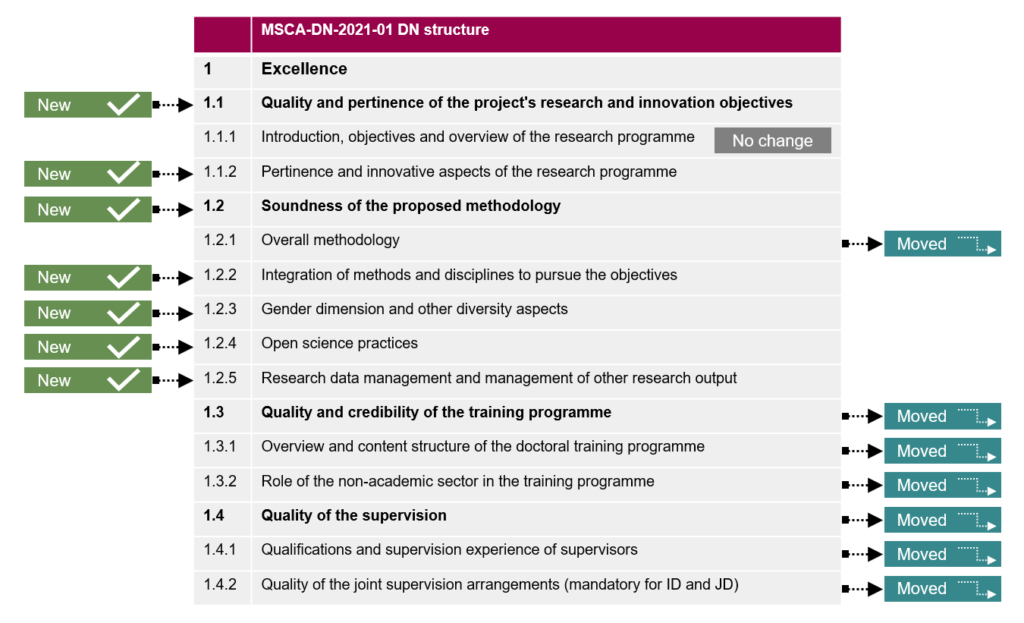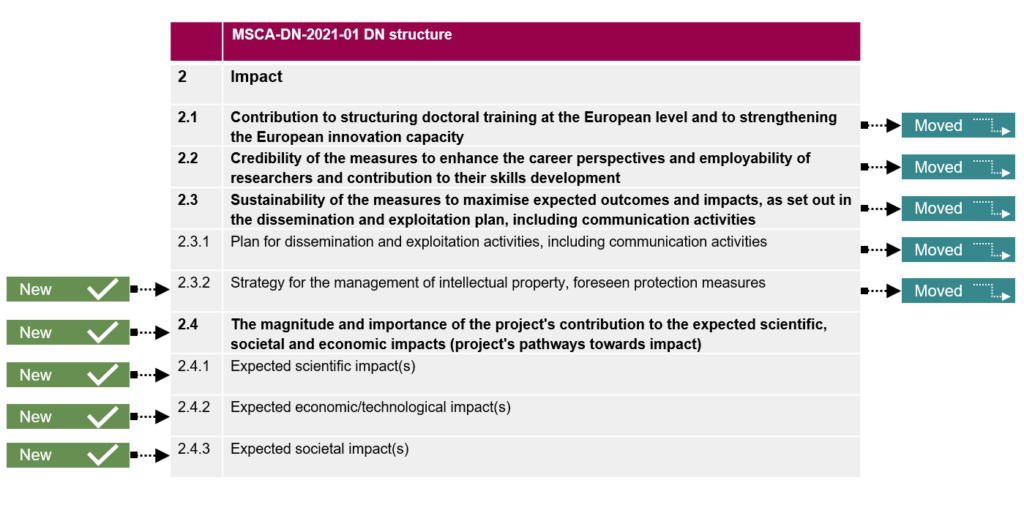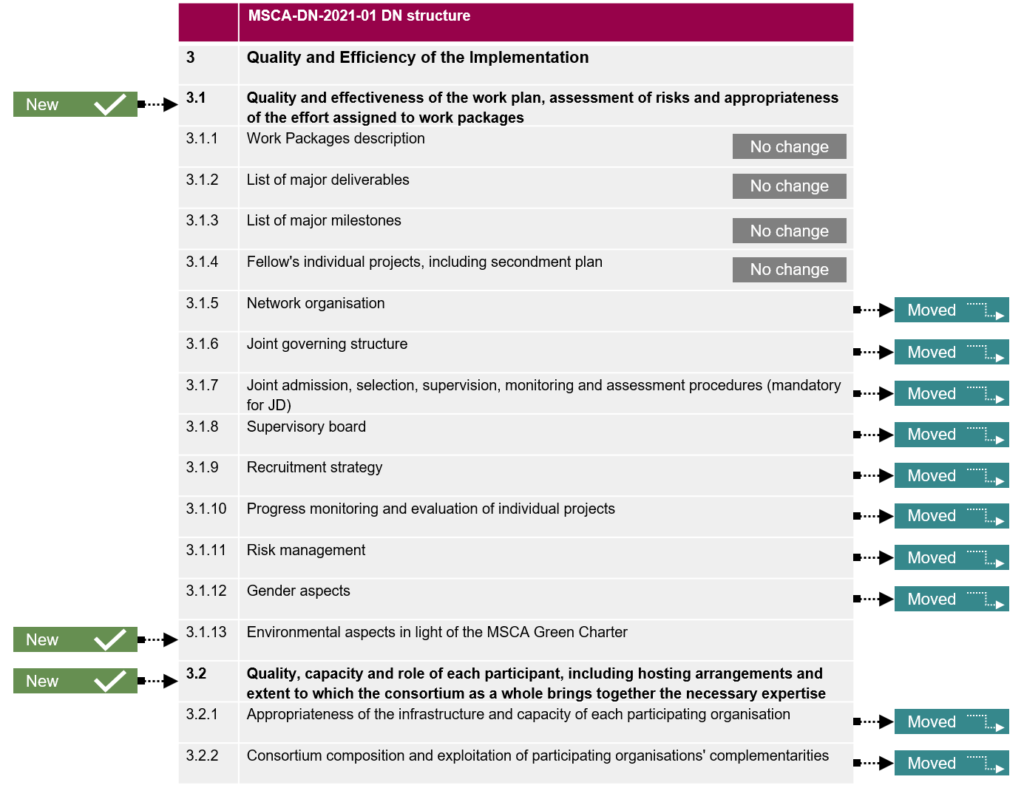From H2020 Innovative Training Networks (ITNs) to Horizon Europe Doctoral Networks (DN) – key changes for you to know
19th July 2021 at 3:21 pm
The long wait is finally over and the first Doctoral Networks (DN) call is now open for submission. We had a look at the Guide for Applicants, the new Standard Proposal Template, and the online forms to find out what is different from the Horizon 2020 Marie Curie ITNs.
Guide for Applicants – from bible to leaflet
The Guide for Applicants used to be the bible for the preparation of ITN proposals; it included all crucial information for developing the proposal and proved to be useful even at the implementation stage. The Doctoral Networks Guide for Applicants is still a useful document; however, its scope has been significantly reduced. The last H2020 Guide for Applicants contained 30 pages of information, even without annexes. In comparison, the new Guide for Applicants is only 11 pages long. Much of the information included is already covered by the Work Programme. Nevertheless, the Guide for Applicants remains an important document for DN applicants.
Proposal template – full of surprises
Participants of the first Horizon Europe calls, such as the Pathfinder Open, were probably just as surprised as we were after having a first look at the new Standard Proposal Template. While the EC seems to have scrapped the Part B2 in all other programmes, the MSCA proposal templates, including the DN template, still include a Part B2 document. This document needs to be submitted as a separate PDF, just like in previous years. Even more surprisingly, the Part B2 template also includes profiles for the participants, known as partner profiles. These are also included in Part A (online forms). According to the currently available information, participants will have to duplicate much of the profile information in two different proposal parts. We will be checking regularly for any updates to the templates and the online forms.
Part B1 template – significant changes
The Part B1 template also includes some significant changes. Section 1.2 is now entirely dedicated to the methodology. Open science practices and research data management are now required sub-headings under this section. The training programme is now covered under section 1.3; however, the expected content has not changed significantly.

The impact section has been restructured and includes an entirely new sub-section 2.4 dedicated to wider impacts – the project’s pathways towards impacts for those already familiar with the term from other Horizon Europe proposals. The dissemination, exploitation and communication activities are now all to be covered in section 2.3.

The implementation section has seen the least amount of changes. Notably, the proposal still includes a management section. In other Horizon Europe proposals, the management section is no longer needed. For the DN proposals, at least this year, most of the required content of the former section 3.2 has been integrated into section 3.1. Specific sections for the Industrial Doctorates (DN-ID) and Joint Doctorates (DN-JD) also remain.

Starting your Doctoral Networks proposal journey
Are you planning to submit a DN proposal to this year’s call? Make sure that you have all the necessary documents ready, including the new MSCA Green Charter and the MSCA Guidelines on Supervision. Last but not least, do not forget to check the call updates section regularly to ensure you do not miss any important updates to the templates and guidelines.
In the meanwhile, we are keeping busy by supporting more than ten ongoing ITNs, including the ETNs AGePOP, CAPSTONE, CONSENSE, NATURE-ETN, EuroNeurotrophin, ImmerSAFE, LightDyNAmics, MUSIQ, and NanoCarb, as well as the EIDs InPharma, MORE, MOSAICS, and STACCATO. With our long-standing experience as a Partner Organisation, now called Associate Partner, for management, communication, dissemination, and exploitation support, as well as transferrable skills training for dozens of ITNs, we also enjoy sharing our expertise through proposal writing workshops for more advanced researchers and online transferable skills training modules for ESRs. If you liked this blog post and want to be notified as soon as we publish any MSCA related news, subscribe to our blog posts and you’ll be on top of the game.

Jacqueline Strehler
Research & Innovation Project Manager
